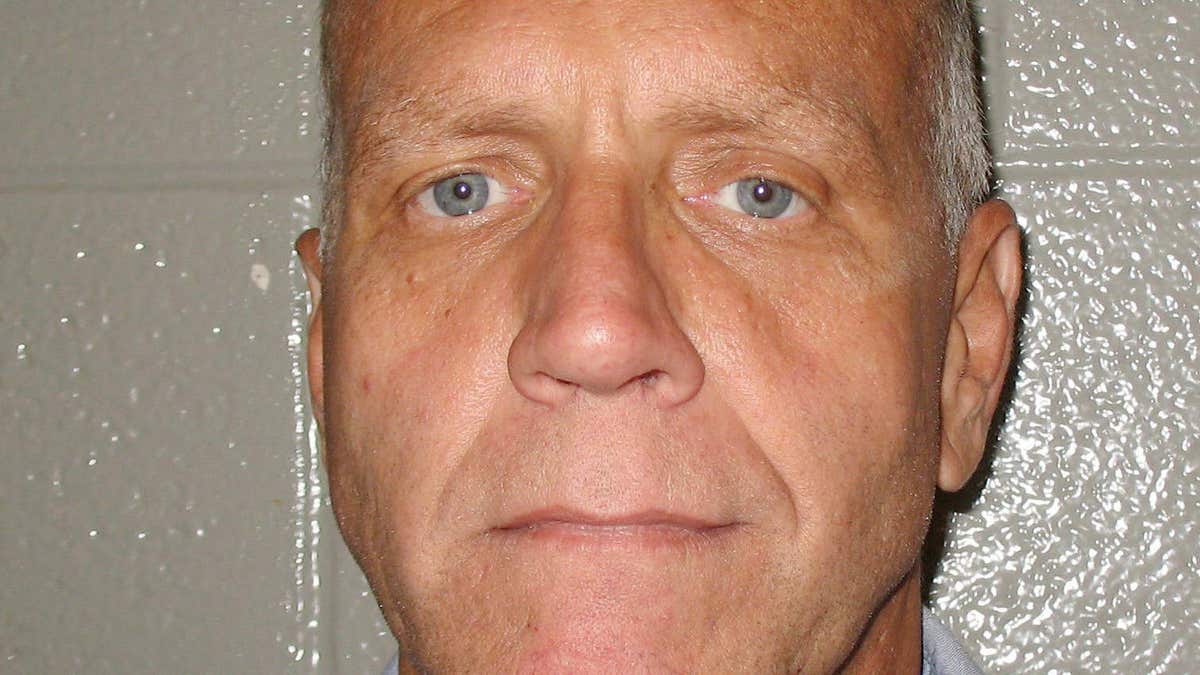
Aug. 22, 2013: This photo provided by the Virginia Deptment of Corrections shows Michael Kenneth McAlister. (AP)
RICHMOND, Va. – Gov. Terry McAuliffe on Wednesday pardoned a Virginia man who has spent 29 years in prison for an attempted rape that authorities now say he did not commit.
Michael Kenneth McAlister, 58, was exonerated just five days ahead of a hearing that could have led to his indefinite confinement as a violent sex offender under the state's civil commitment law.
"My staff and I have carefully and thoroughly reviewed the documentation in this case and concluded that a pardon is appropriate in light of the overwhelming evidence, including a recent confession by another individual, pointing to Mr. McAlister's actual innocence of the crime for which he was convicted," McAuliffe said in a written statement.
McAlister's sister, Denise Haas, said the family was ecstatic.
"We are just floating on cloud nine," she said in a telephone interview. "We've been living 29-plus years in a nightmare that nobody would believe, and now it's over. My brother's going to be free and be able to be with the family and catch up on all these years we've missed."
McAlister was convicted of the February 1986, abduction and attempted rape of a woman who was dragged at knifepoint from an apartment complex laundry room in Richmond. The victim identified McAlister as the attacker from a photo lineup that did not include a picture of a serial rapist, Norman Bruce Derr, who lived nearby and bore a strong resemblance to McAlister.
The governor did not identify the man who confessed, but spokesman Brian Coy confirmed that it was Derr, who is now serving three life terms in prison.
Virginia prisons spokeswoman Lisa Kinney was unable to say how soon McAlister will be released from prison. An Associated Press request for a telephone interview with McAlister was pending.
"We're thrilled the governor did the right thing here and that he's giving Mike the freedom he's deserved for so long," said Shawn Armbrust, executive director of the Mid-Atlantic Innocence Project, which pushed McAlister's exoneration. "I know these aren't easy decisions for governors to make, and we are grateful that Gov. McAuliffe did it and did it so quickly."
McAuliffe granted the pardon a little over a month after receiving the petition. Among those backing McAlister's bid were the former police detective who investigated him, C.M. Martin, and Richmond Commonwealth's Attorney Michael Herring.
McAlister's prison term ended in January, but he remained locked up until the court could decide the civil commitment issue. McAlister's supporters pressed the governor for a decision before a scheduled probable cause hearing on that matter, which had been scheduled for Monday in Richmond Circuit Court.
The wrongful conviction was based on a classic case of misidentification. The victim fought off her attacker and was able to get a partial look at his face by clawing at his stocking mask. According to the petition to the governor, the woman picked out McAlister from "a highly suggestive photo array" that did not contain the picture of Derr, whose previous attack on a police decoy in a laundry room of the same apartment complex had been thwarted.
McAlister was initially identified as a suspect based on a police composite sketch. He was known to the local police because he had a record of indecent exposure and he lived only about four miles from the apartment complex where the attack occurred. When he was interviewed by detectives, McAlister agreed to allow them to take his picture wearing a plaid shirt similar to the one the attacker had worn. He was the only person in the photo lineup wearing that type of shirt, the petition says.
The only trial evidence linking McAlister to the attack was the victim's eyewitness testimony.
"The integrity of our justice system depends on the guarantee of a fair trial that is informed by all available evidence," McAuliffe said. "Protecting that integrity requires quick action in the event that new evidence comes to light."

